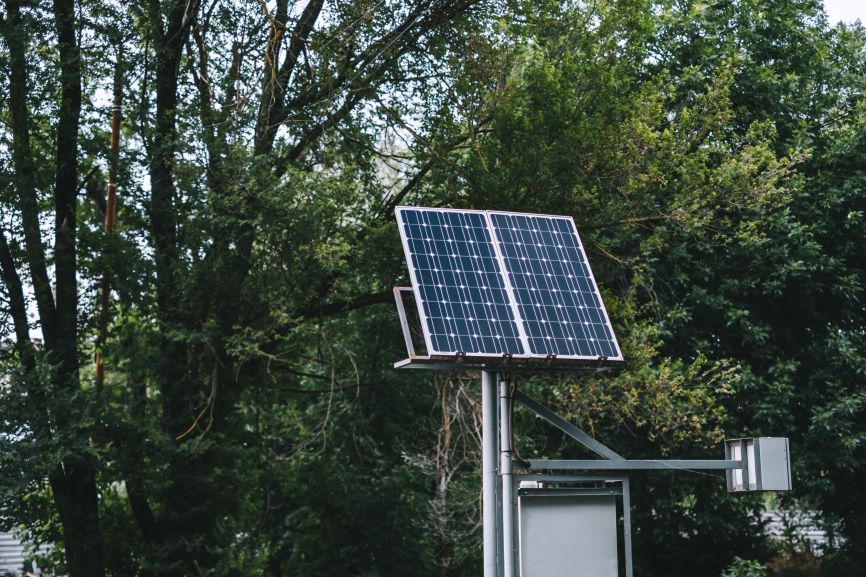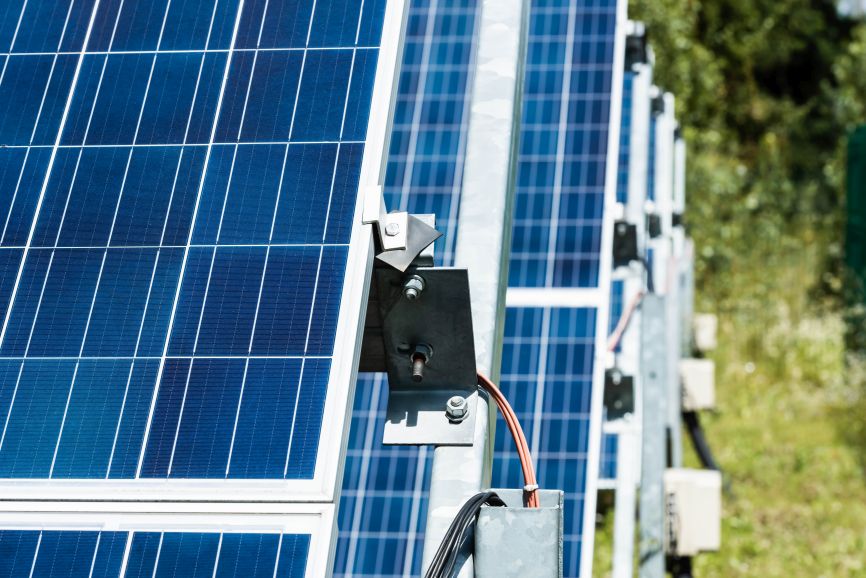Homeowners and business owners across Massachusetts want solar that just works-without constant monitoring or manual upkeep. But keeping panels performing their best through changing seasons, snow, and shade can feel complicated. Automated solar panel systems make it effortless. They track the sun, self-adjust for maximum output, and even alert you when maintenance is needed. At EcoSunWorks, we help you take the next step toward hands-off, high-efficiency solar energy-so you can save more and stress less.

What Are Automated Solar Panels?
Automated solar panels use built-in tracking, monitoring, and control systems that allow panels to adjust their tilt and angle throughout the day.
Instead of staying fixed, these panels follow the sun’s path for optimal sunlight capture. Many systems also integrate with smart inverters or apps that track performance and report real-time data.
Core automation features include:
- Solar tracking systems (single- or dual-axis) that reposition panels automatically.
- Smart monitoring that detects shading, dirt, or snow coverage.
- AI-driven energy management that predicts weather patterns and adjusts for peak efficiency.
How Automated Solar Panels Work
Automated systems rely on sensors, motors, and control algorithms:
- Sunlight sensors detect the sun’s intensity and position.
- Motorized mounts move the panels toward the brightest point.
- Controllers optimize tilt angles and energy output in real time.
- Smart analytics monitor performance through connected apps.
This automation can increase energy generation by 20–30% compared to fixed panels-especially valuable in New England where sunlight changes drastically through the year.
Benefits of Automated Solar Panels
- Higher Efficiency Year-Round
Automated systems maximize solar exposure-even during short Massachusetts winter days. - Reduced Maintenance
Sensors can detect snow buildup or debris, prompting cleaning alerts to keep panels productive. - Longer Lifespan
Because automation optimizes operation and reduces strain, panels last longer and maintain consistent output. - Smart Monitoring at Your Fingertips
Real-time dashboards and mobile apps let you track production, energy savings, and carbon offsets.

Are Automated Solar Panels Worth It in Massachusetts?
Absolutely. Massachusetts’ mix of cloud cover, variable sunlight, and snowy winters makes automation especially valuable. The technology ensures your panels always face the best direction-even when conditions change hourly.
While upfront costs are slightly higher, the energy gains and time savings quickly make up the difference. Automated systems also qualify for federal and state incentives, including the Mass Save program and solar tax credits –further improving ROI.
Common Questions About Automated Solar Panels
What is the 33% rule in solar panels?
It refers to the average system loss factors-like shading and inefficiencies-that reduce a panel’s ideal performance. Automation helps cut that loss by improving exposure.
Is a 90% efficient solar panel possible?
Not yet-current technology caps around 22–24% efficiency-but automation can raise system performance closer to theoretical limits.
Why are people getting rid of their solar panels?
Often due to poor maintenance or outdated systems. Automated monitoring prevents these issues by catching performance drops early.
What will a 3000-watt solar panel run?
It can power essentials like refrigerators, lighting, and small HVAC loads-ideal for energy-conscious homeowners or small businesses.
EcoSunWorks Makes Smart Solar Simple
Here’s the thing-automated solar tech sounds complex, but implementation doesn’t have to be. EcoSunWorks handles everything from system design to installation and optimization, ensuring your smart solar setup performs flawlessly in Massachusetts weather.
If automation, savings, and sustainability sound good to you, our local experts can walk you through the right system for your property-step by step.
Call today to get a Free Quote! or Explore Our Solar Installation Services →
